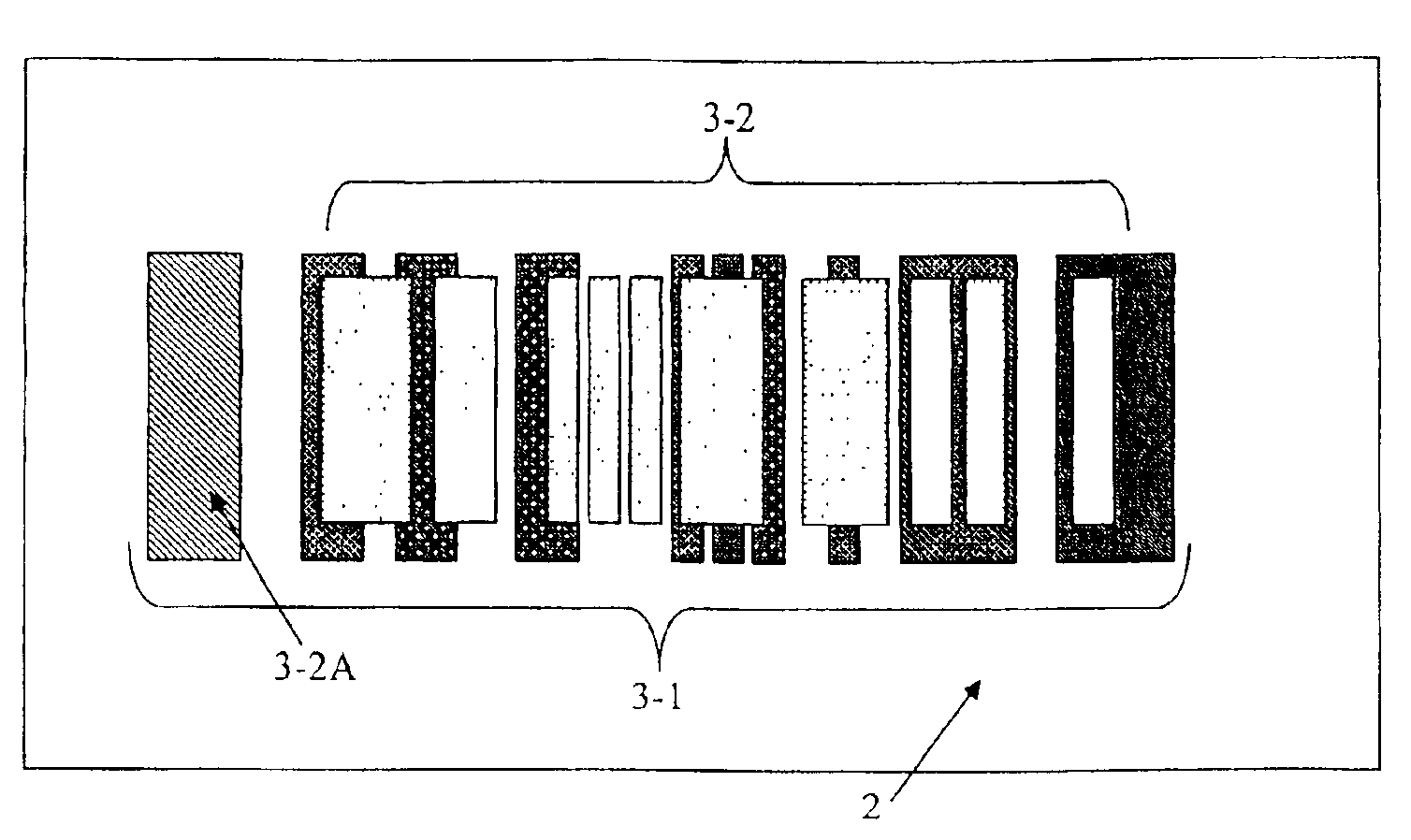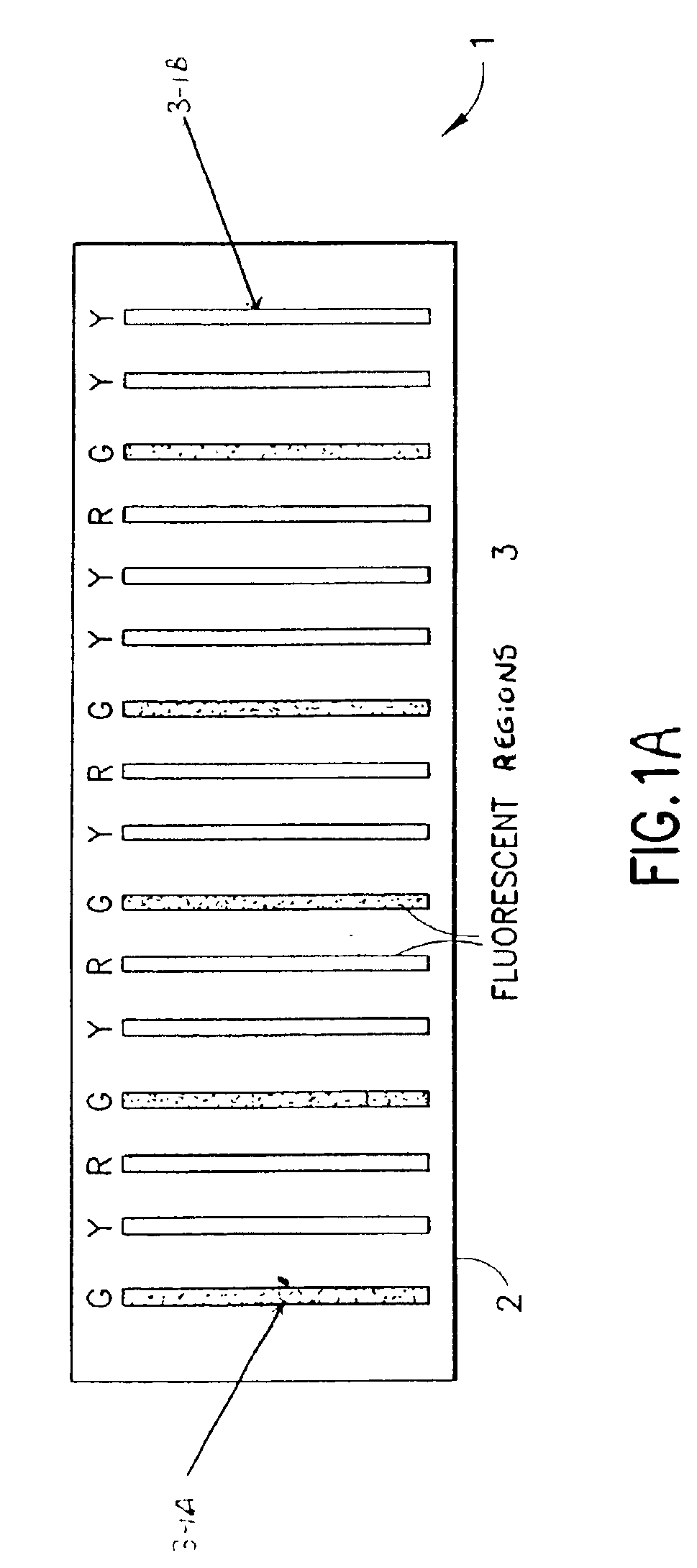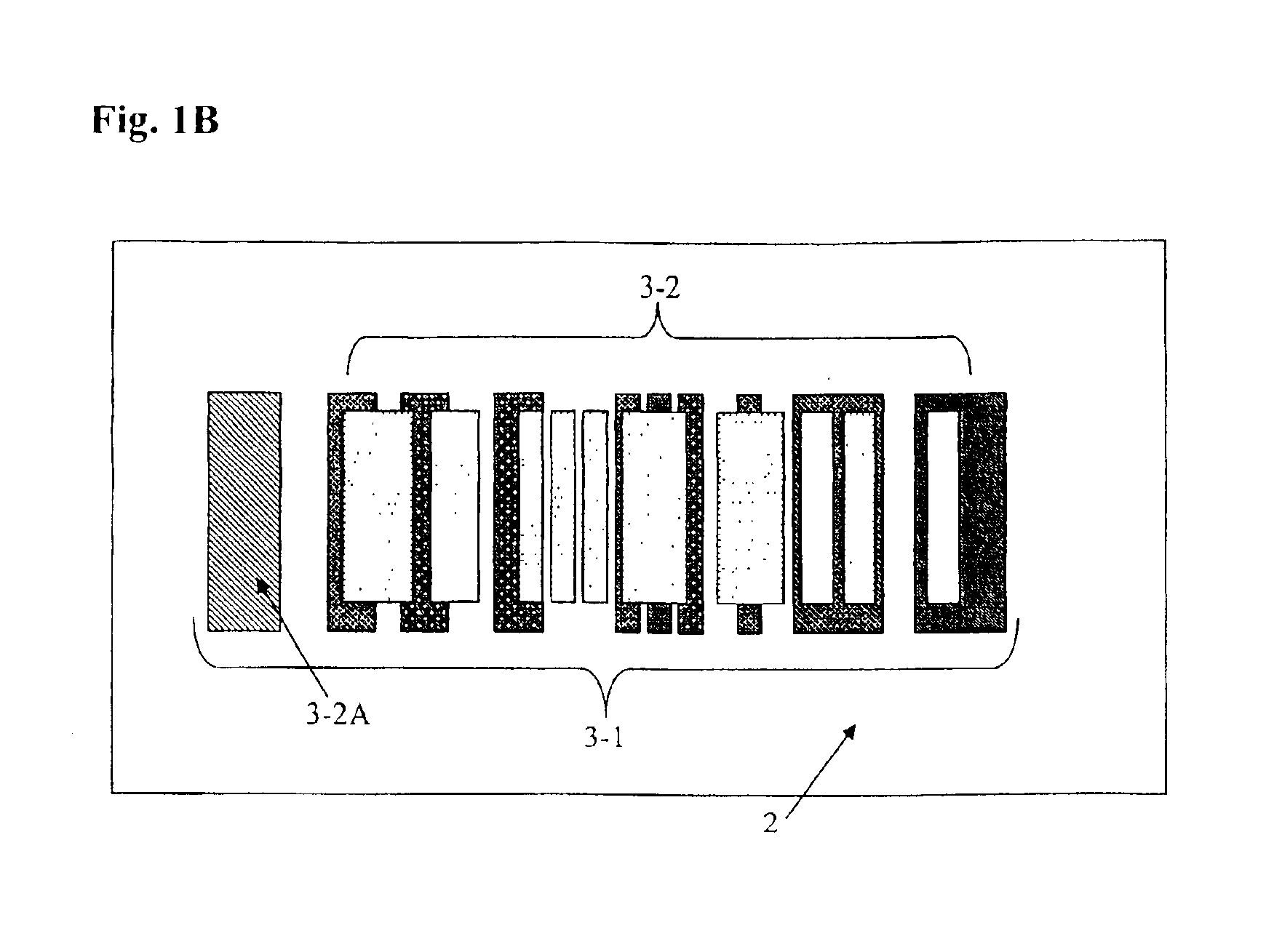Methods and apparatus employing multi-spectral imaging for the remote identification and sorting of objects
a multi-spectral imaging and object technology, applied in the field of optically coding objects, can solve the problems of unsatisfactory solutions, large number of items, and many industrial problems that cannot be overcom
- Summary
- Abstract
- Description
- Claims
- Application Information
AI Technical Summary
Benefits of technology
Problems solved by technology
Method used
Image
Examples
Embodiment Construction
In accordance with aspects of this invention, a plurality of regions are applied to an article in order to form a mark that represents encoded information. Included with the plurality of regions is at least one key region that supplies the readout process with at least one characteristic related to the plurality of regions. The plurality of regions, and the key region, are formed of materials that emit a predetermined set of wavelengths under proper illumination. In preferred embodiments, fluorescent ink is used to form the plurality of regions and the at least one key region. The fluorescent ink may be applied using known techniques.
In preferred embodiments, key regions are characterized by wavelength emissions that are distinct from the wavelength emissions of the plurality of regions. The key region(s) carries additional information that relates to the encoded information. In some embodiments, a key region is signified by aspects other than unique wavelength emission, such as, fo...
PUM
 Login to View More
Login to View More Abstract
Description
Claims
Application Information
 Login to View More
Login to View More - R&D
- Intellectual Property
- Life Sciences
- Materials
- Tech Scout
- Unparalleled Data Quality
- Higher Quality Content
- 60% Fewer Hallucinations
Browse by: Latest US Patents, China's latest patents, Technical Efficacy Thesaurus, Application Domain, Technology Topic, Popular Technical Reports.
© 2025 PatSnap. All rights reserved.Legal|Privacy policy|Modern Slavery Act Transparency Statement|Sitemap|About US| Contact US: help@patsnap.com



